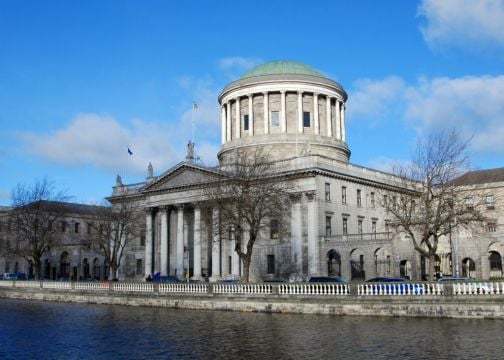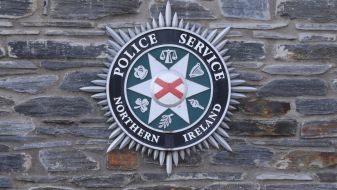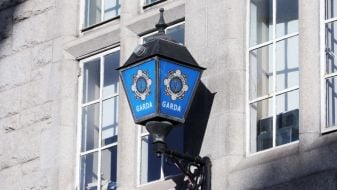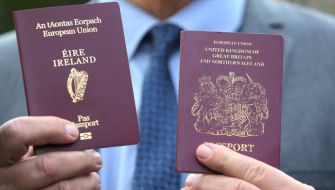The conviction of Dublin man Vincent Banks for being a member of the IRA has been quashed by the Supreme Court.
The five-judge court ruled on Thursday that Mr Banks' appeal should be allowed because his arrest in December 2012 on suspicion of offences including being a member of an illegal organisation was not lawful.
The Court also found that evidence given by the prosecution at Mr Banks' criminal trial was not sufficiently strong enough to prove the offence of membership of the IRA beyond reasonable doubt.
In 2017 Mr Banks was convicted by the non-jury Special Criminal Court (SCC) of being a member of an unlawful organisation namely the IRA, contrary to the 1939 Offences Against the State Act.
He was sentenced to five years in prison.
He was charged with the offence arising out of his arrest on December 18th, 2012. His arrest by the gardaí came as part of the investigation into the November 2012 murder of Northern Ireland prison officer David Black in Co Armagh.
It was alleged that the vehicle used by those who shot Mr Black, as he was driving to work, had been purchased by Mr Banks in Dublin in October 2012.
Appeals
Mr Banks, of Smithfield Gate Apartments in Dublin 7 who is aged in his early 50s, was tried before the Special Criminal Court on charges of withholding information.
He was acquitted of that charge in 2014.
He was later charged with, and found guilty following a separate trial before the SCC, of being a member of the IRA.
He appealed his conviction to the Court of Appeal, which dismissed his appeal.
However, the Supreme Court agreed to hear his appeal against his conviction after deeming that Mr Banks' case raised issues of general public importance.
In its judgement on Thursday, the five-judge Supreme Court, comprised of the Chief Justice Mr Justice Donal O'Donnell, Mr Justice John MacMenamin, Ms Justice Elizabeth Dunne, Ms Justice Iseult O'Malley, and Mr Justice Seamus Woulfe unanimously said that the appeal should be allowed and the conviction quashed.
In his appeal it was claimed that prior to his arrest by the gardaí in December 2012, Mr Banks had been arrested the previous September, also on suspicion of being an IRA member, but had been released without charge.
Previous arrest
The basis for that arrest was that Mr Banks had been at the funeral of Alan Ryan, a man believed to be a member of the IRA who was murdered, the judge said.
It was alleged that members of a paramilitary-style colour party, who during the funeral had fired shots over Ryan's coffin, had changed uniforms in Mr Banks' van before disappearing into the crowd.
He appealed that conviction on grounds including that his arrest was unlawful. It was claimed his arrest in December was for the same offence as the earlier arrest, and under the 1939 Act he could only be lawfully arrested on a warrant issued by the District Court.
The second arrest was done without warrant, it was claimed.
His lawyers submitted that sections of the Act give a degree of protection against repeated arrests and detention where a person has been detained for an offence under the Act and then released without charge.
The SCC ruled that the second arrest was not for the same offence as the first, because it took place in different circumstances and as part of a different investigation.
Another ground of appeal raised related to the effect of the claim of privilege made by a Garda Detective Chief Superintendent, when giving evidence to the SCC about their belief that Mr Banks was a member of the IRA.
Mr Bank's lawyers argued that the breath of the claim was such that no meaningful cross-examination could be conducted by the defence.
'Grave suspicion'
Giving the court's decision Ms Justice O'Malley said that the evidence given by the senior garda in relation to their belief that Mr Banks was an IRA member is required to be supported by strong independent evidence.
However, having considered the other evidence in the case, the Supreme Court did not accept that the belief evidence reached the necessary standard to support evidence given by the senior garda.
While there were grounds "for grave suspicion" in relation to Mr Banks' role in sourcing a car used in a murder, the evidence before the court was "not sufficiently strong to prove the offence of membership beyond reasonable doubt" the judge said.
Regarding Mr Banks' arrest without a warrant in December 2012, the judge said that the legislature has provided a straight forward means to progress an investigation, where statutory limitations apply, by requiring a warrant to be obtained from a District Court judge.

The statute in question, the judge said, applies to those arrested on suspicion of membership of an illegal organisation and released without charged.
The SCC, the judge said, had erred in holding that because the second arrest related to a different incident, the subject of a separate investigation, no warrant was required for the December 2012 arrest.
Protection against the abuse of power of arrest, she said, would be "gravely weakened" if such matters were left to be determined in the context of a trial.
In all the circumstances the Judge said that the appeal should be allowed.







